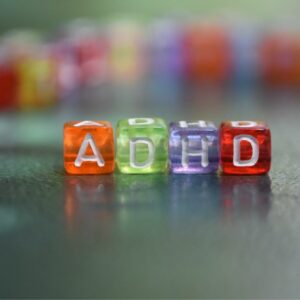
14 Dec ADHD Tips to Try for Children, Teens and Adults
ADHD TIPS TO TRY FOR CHILDREN, TEENS AND ADULTS

How to Deal with ADHD
Recognizing ADHD signs across different age groups is crucial for early identification and effective management. In children, symptoms often include struggles with attention, such as difficulty following instructions or staying focused on tasks, coupled with hyperactivity or impulsivity, seen through constant fidgeting or interrupting others. During adolescence, teens with ADHD may exhibit inattention through organizational challenges and distractibility, along with hyperactivity and impulsivity, evident in restlessness or impulsive decision-making. In adults, symptoms might manifest as difficulties maintaining focus, disorganization, forgetfulness, restlessness, or impulsive behaviors.
Seeking professional guidance for accurate diagnosis and tailored strategies is essential for managing ADHD symptoms effectively across these diverse age groups. Here are effective tips tailored for children, teens, and adults coping with ADHD:
For Children:
1. Establish Routines: Establishing routines is vital for children managing ADHD. Consistent schedules help create predictability and structure, aiding in task management and activity transitions. Routines provide a framework for children with ADHD, reducing anxiety and enhancing focus by offering clear expectations for daily tasks and activities.
2. Use Visual Aids: Visual aids are essential for children coping with ADHD. These aids, like visual schedules or charts, provide clear, tangible reminders for tasks and routines, aiding comprehension and task completion. Visual cues help children with ADHD stay organized and focused by offering a visual representation of expectations and timelines, facilitating smoother transitions between activities throughout their day.
3. Break Tasks into Steps: Breaking tasks into steps is crucial for children managing ADHD. This approach helps simplify complex tasks into smaller, manageable parts, making them less overwhelming and more achievable. By breaking tasks down, children with ADHD can approach activities systematically, reducing frustration and improving their ability to complete tasks successfully.
4. Encourage Movement: Encouraging movement is vital for children with ADHD. Physical activities and breaks help release excess energy, allowing children to refocus and improve attention spans. Incorporating movement breaks throughout the day aids in managing restlessness and enhancing overall focus and concentration for children with ADHD.
5. Provide Clear Instructions: Offering clear instructions is crucial for children managing ADHD. Using concise and straightforward guidance helps them better understand tasks and expectations. Clear instructions reduce confusion and frustration, enabling children with ADHD to navigate activities more independently and effectively.

For Teens:
1. Time Management Skills: Time management skills are essential for teens managing ADHD. Learning to organize tasks, prioritize responsibilities, and allocate time effectively helps teens handle academic demands and personal commitments more efficiently. Developing these skills assists teens in managing their schedules, reducing procrastination, and maintaining focus amidst distractions commonly associated with ADHD, ultimately improving their overall productivity.
2. Utilize Technology: Leveraging technology is crucial for teens with ADHD. Using apps or digital tools for reminders, scheduling, and task organization assists in managing time and staying on track with responsibilities. These tools help teens organize their academic and personal lives, offering support in remembering deadlines and staying focused, which is essential for managing ADHD-related challenges
3. Encourage Self-Advocacy: Encouraging self-advocacy is pivotal for teens coping with ADHD, and empowering them to communicate their needs and seek necessary accommodations fosters independence and confidence in managing their condition. Teaching teens to advocate for themselves enables them to navigate academic and social settings more effectively, ensuring they receive the support needed to succeed despite the challenges posed by ADHD.
4. Establish Study Strategies: Establishing study strategies is vital for teens managing ADHD. Developing effective study routines and techniques assists in managing academic workloads and improving focus. Implementing strategies like breaking down tasks, using visual aids, or creating structured study schedules helps teens with ADHD manage their time efficiently and enhances their ability to comprehend and retain information, contributing to academic success.
5. Stress Management: Prioritizing stress management is critical for teens managing ADHD. Teaching effective stress-relieving techniques and coping mechanisms helps teens handle the emotional challenges associated with ADHD. Encouraging activities like mindfulness, exercise, or hobbies aids in reducing stress levels and improving overall well-being, empowering teens to navigate the pressures of academic and social environments more effectively.

For Adults:
1. Organizational Systems: Implementing organizational systems is crucial for adults managing ADHD. These systems, such as planners or digital calendars, help manage tasks, appointments, and deadlines effectively. Organizational tools assist in maintaining structure and order, aiding adults in prioritizing and managing various responsibilities more efficiently despite the challenges presented by ADHD-related symptoms.
2. Set Realistic Goals: Setting realistic goals is essential for adults managing ADHD. Establishing achievable objectives helps break down tasks into manageable steps, reduce overwhelm, and increase productivity. By setting realistic goals, adults with ADHD can focus their efforts effectively, making progress without feeling burdened by unattainable expectations, ultimately leading to a sense of accomplishment and improved time management.
3. Prioritize Tasks: Prioritizing tasks is crucial for adults managing ADHD. It involves identifying and focusing on the most important tasks to ensure effective time management. Prioritization helps adults with ADHD direct their attention and efforts toward essential responsibilities, reducing stress and increasing productivity by tackling high-priority tasks efficiently.
4. Create Structure: Establishing structure is vital for adults managing ADHD. Implementing routines and consistent schedules helps create a framework for managing daily tasks and responsibilities. Structure aids in minimizing distractions, maintaining focus, enhancing organization, and assisting adults with ADHD in navigating their day-to-day activities more efficiently and effectively.
5. Seek Support: Seeking support is crucial for adults managing ADHD. Engaging with support groups or seeking professional guidance provides valuable resources and strategies to manage ADHD-related challenges effectively. Seeking help allows adults to access coping mechanisms, learn effective management techniques, and find encouragement in navigating the complexities of ADHD, fostering a more fulfilling and balanced life.
Conclusion
By implementing these tailored strategies for children, teens, and adults, individuals with ADHD can navigate daily challenges more effectively. Understanding and incorporating these tips into daily routines can significantly enhance the quality of life for individuals managing ADHD across various age groups.
Check Out Our Other Blogs:
- Understanding and Channeling ADHD Energy
- Providing Positive Feedback to Kids with ADHD
- ADHD Tips for a Productive and Fulfilling Journey
- ADHD Management: How Prompting and Fading Can Help
- Developing Self-Regulation in Children with ADHD
- Tips to Overcome Procrastination in ADHD Patients
- How to Get in a Flow State When You Have ADHD
- Effective Classroom Interventions for ADHD
- Strategies for ADHD and Boredom for School-Age Students
Craig Selinger
Latest posts by Craig Selinger (see all)
- Psychotherapy and Support Services at Cope With School NYC - April 12, 2024
- NYC Parents of Teens Support Group - April 8, 2024
- Here I Am, I Am Me: An Illustrated Guide to Mental Health - April 4, 2024


No Comments